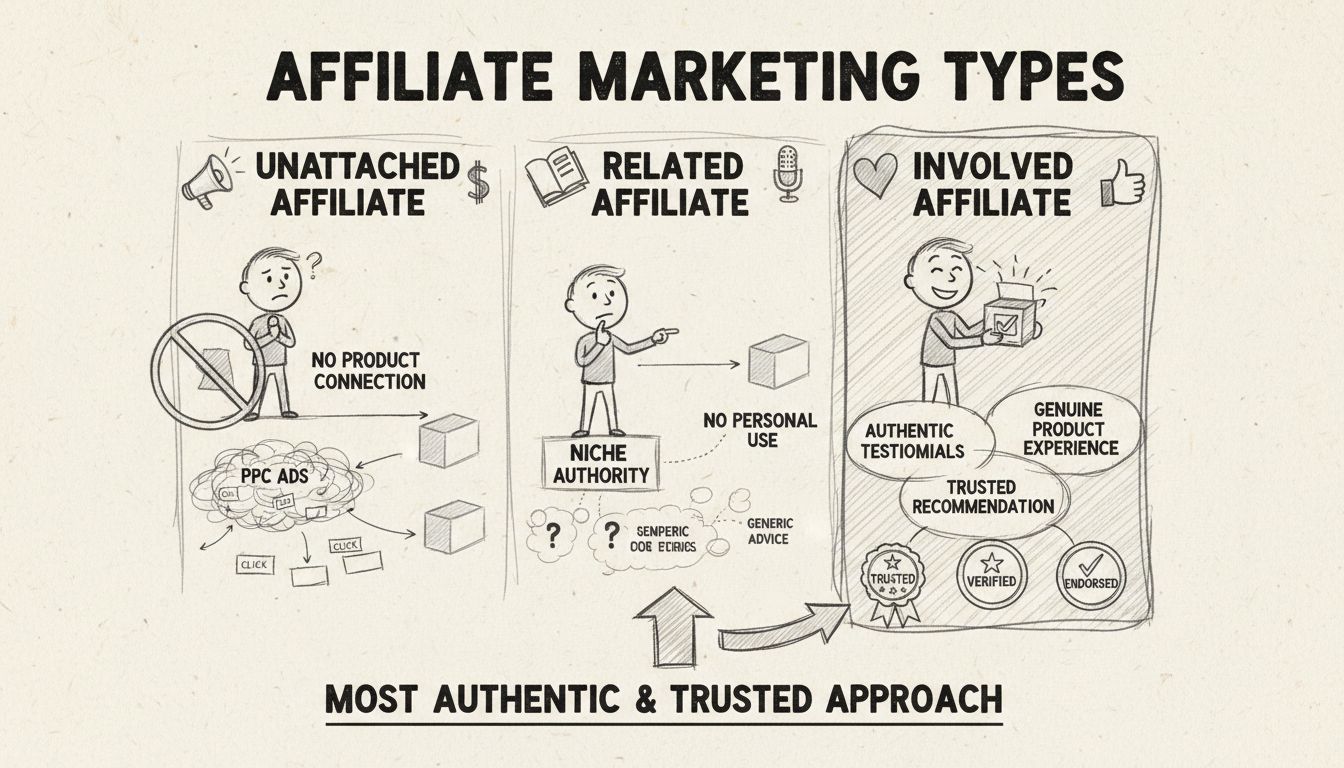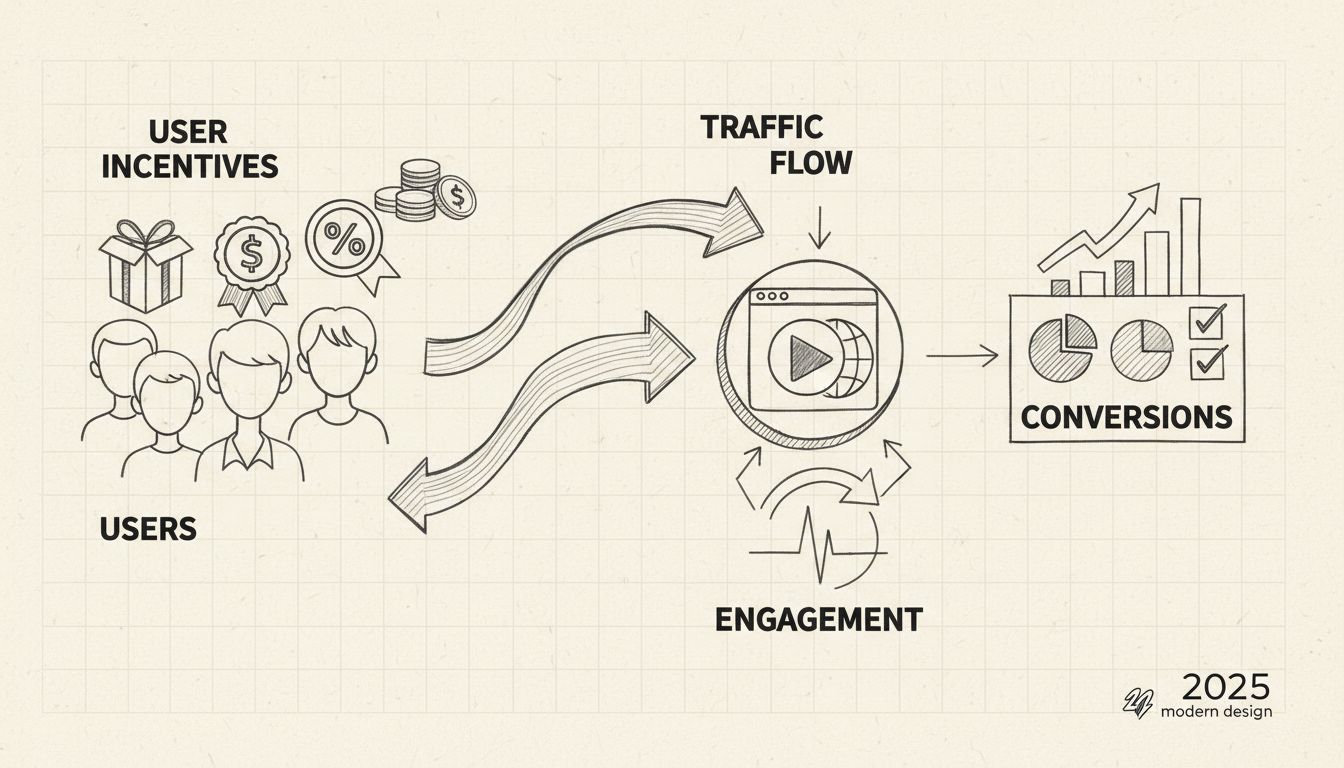
What is an Involved Affiliate? The Most Authentic Form of Affiliate Marketing
Discover what an Involved Affiliate is and why authentic product endorsements drive higher conversions. Learn how personal experience builds trust and generates...
An incentivized affiliate drives traffic and sales by offering rewards like cash, points, or discounts to motivate consumers to complete desired actions for commissions.
An incentivized affiliate is a type of affiliate marketer who drives traffic and generates sales for a business by offering potential customers incentives. These incentives can be in the form of cash, points, discounts, free products, or other rewards. The primary goal is to motivate consumers to complete specific actions that ultimately benefit both the affiliate and the business, such as making a purchase or signing up for a service.
Incentivized affiliate marketing is a subset of the broader affiliate marketing strategy , which involves affiliates promoting products or services in exchange for commissions. This model specifically leverages rewards to enhance consumer engagement and increase conversion rates. It provides businesses the potential to expand their reach and increase sales without significant upfront costs, as commissions are paid only upon successful transactions. This approach is particularly beneficial for businesses aiming to quickly boost sales and acquire new customers , providing a cost-effective method to drive brand awareness and conversions.
Businesses implementing incentivized affiliate programs should consider the following strategies:
Seasonal Campaigns: During key shopping periods like the holidays, affiliates can boost engagement with time-limited offers and exclusive incentives, capitalizing on heightened consumer purchasing intent.
Cashback Platforms: Websites like Rakuten allow users to earn cash back on purchases made through affiliate links , sharing a portion of the commission with consumers. This model has proven effective in driving repeat purchases and customer loyalty.
Loyalty and Points Programs: Airlines and retail stores often use loyalty points systems, where customers earn points for purchases that can be redeemed for discounts or free products. These programs not only drive sales but also enhance customer engagement and retention.
Social Media Promotions: Influencers might offer their followers exclusive discount codes or giveaways to promote brand engagement and drive sales through affiliate links. This approach leverages the influencer’s reach and trust to boost conversions.
Incentivized traffic can work in a number of ways. For example, publishers may offer users a discount or incentive for clicking on ads or completing a survey. In some cases, advertisers may pay users for their attention or for taking action on an ad.
Incentivized traffic is traffic that is generated by offering rewards or incentives to users in exchange for completing a desired action, such as filling out a form or completing a survey. It can be effective in generating leads or collecting data, but it can also be susceptible to fraud.
Discover how incentivized affiliates can expand your reach, drive conversions, and increase loyalty through effective reward strategies.

Discover what an Involved Affiliate is and why authentic product endorsements drive higher conversions. Learn how personal experience builds trust and generates...

Learn what incentivized traffic is, how it works, and why it's essential for affiliate marketing. Discover best practices, fraud prevention, and how PostAffilia...
Discover the meaning of Involved Affiliate in affiliate marketing. Learn how personal experience and authentic endorsements build trust, credibility, and drive ...
Cookie Consent
We use cookies to enhance your browsing experience and analyze our traffic. See our privacy policy.